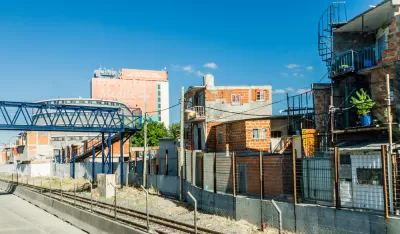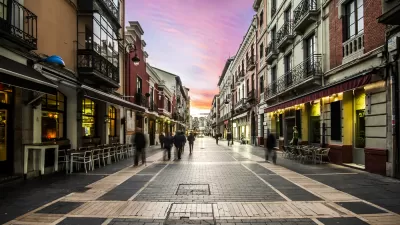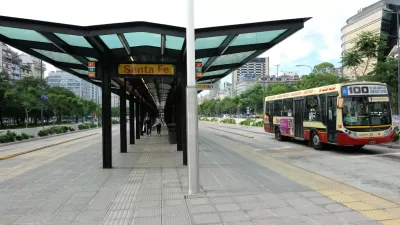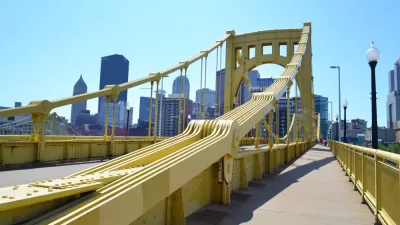A study of a poorer neighborhood in Buenos Aires reveals that a delicate balance of design, public space, planning, and access are keys to success.

Gehl Architects was recently invited to Buenos Aires to analyze urban design and social characteristics of Villa 31, a poorer neighborhood in that city, with the goal of making intelligent decisions to improve conditions and opportunity for residents there. What Gehl found is successful cities combine a blend of planning and organic growth to become successful, and the greatest places in cities are often a result of informal processes.
Five important findings were presented in a recent article in Next City. They are: proximity matters, a neighborhood can be dense and human scale, streets can be joyful and safe public spaces, flexible architecture breeds economic opportunity, and personality shapes place. These universal truths shouldn't come as surprise to readers, but should reinforce the idea of planning as fixing those things that require change as well as leaving well enough alone.
FULL STORY: Embracing the Paradox of Planning for Informality

Study: Maui’s Plan to Convert Vacation Rentals to Long-Term Housing Could Cause Nearly $1 Billion Economic Loss
The plan would reduce visitor accommodation by 25,% resulting in 1,900 jobs lost.

North Texas Transit Leaders Tout Benefits of TOD for Growing Region
At a summit focused on transit-oriented development, policymakers discussed how North Texas’ expanded light rail system can serve as a tool for economic growth.

Using Old Oil and Gas Wells for Green Energy Storage
Penn State researchers have found that repurposing abandoned oil and gas wells for geothermal-assisted compressed-air energy storage can boost efficiency, reduce environmental risks, and support clean energy and job transitions.

Private Donations Propel Early Restoration of Palisades Playground
Los Angeles has secured over $1.3 million in private funding to restore the Pacific Palisades playground months ahead of schedule, creating a modern, accessible space that supports community healing after recent wildfires.

From Blight to Benefit: Early Results From California’s Equitable Cleanup Program
The Equitable Community Revitalization Grant (ECRG) program is reshaping brownfield redevelopment by prioritizing projects in low-income and environmental justice communities, emphasizing equity, transparency, and community benefits.

Planting Relief: Tackling Las Vegas Heat One Tree at a Time
Nevada Plants, a Las Vegas-based nonprofit, is combating the city’s extreme urban heat by giving away trees to residents in underserved neighborhoods, promoting shade, sustainability, and community health.
Urban Design for Planners 1: Software Tools
This six-course series explores essential urban design concepts using open source software and equips planners with the tools they need to participate fully in the urban design process.
Planning for Universal Design
Learn the tools for implementing Universal Design in planning regulations.
Ascent Environmental
Borough of Carlisle
Institute for Housing and Urban Development Studies (IHS)
City of Grandview
Harvard GSD Executive Education
Toledo-Lucas County Plan Commissions
Salt Lake City
NYU Wagner Graduate School of Public Service





























